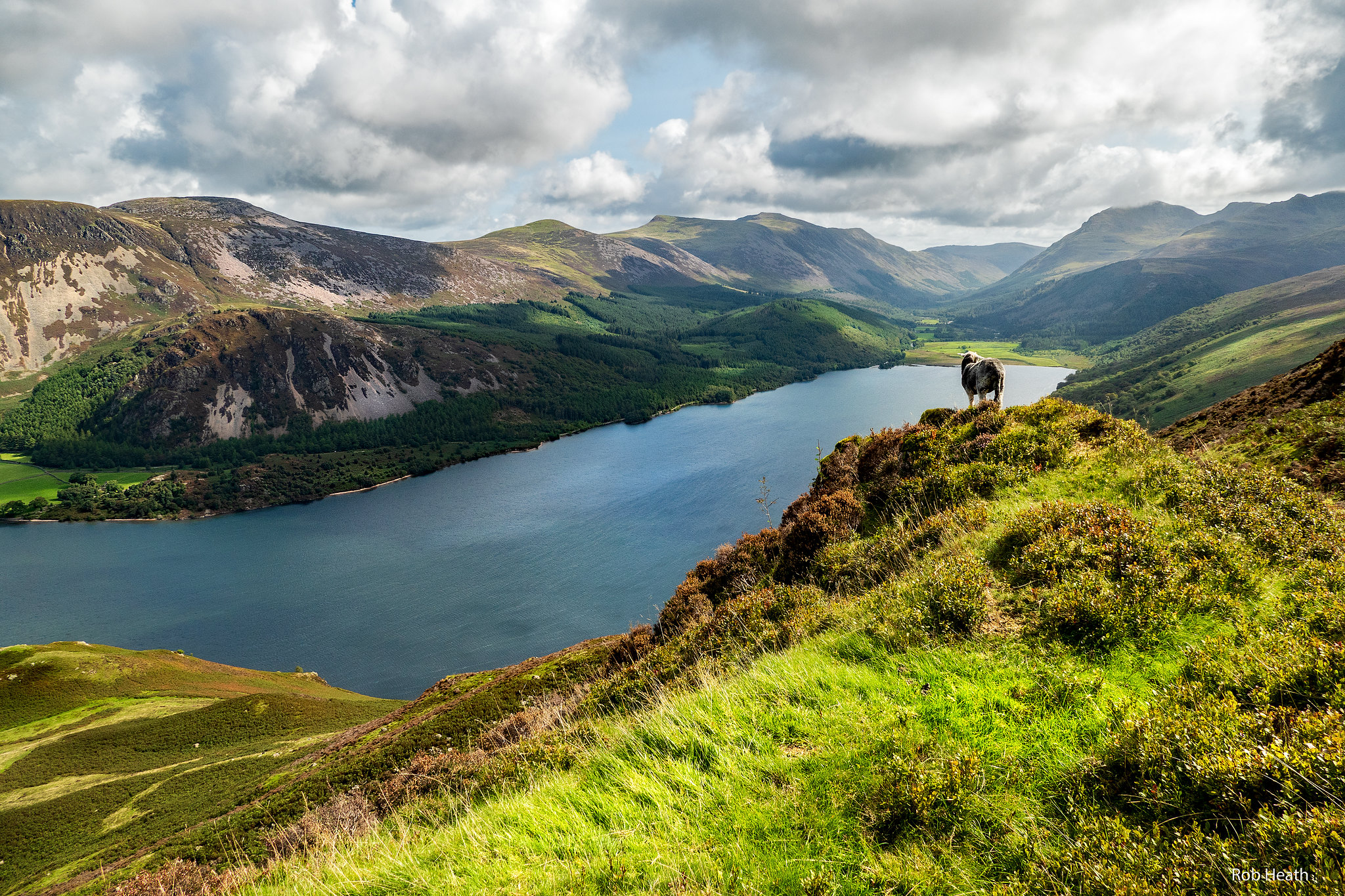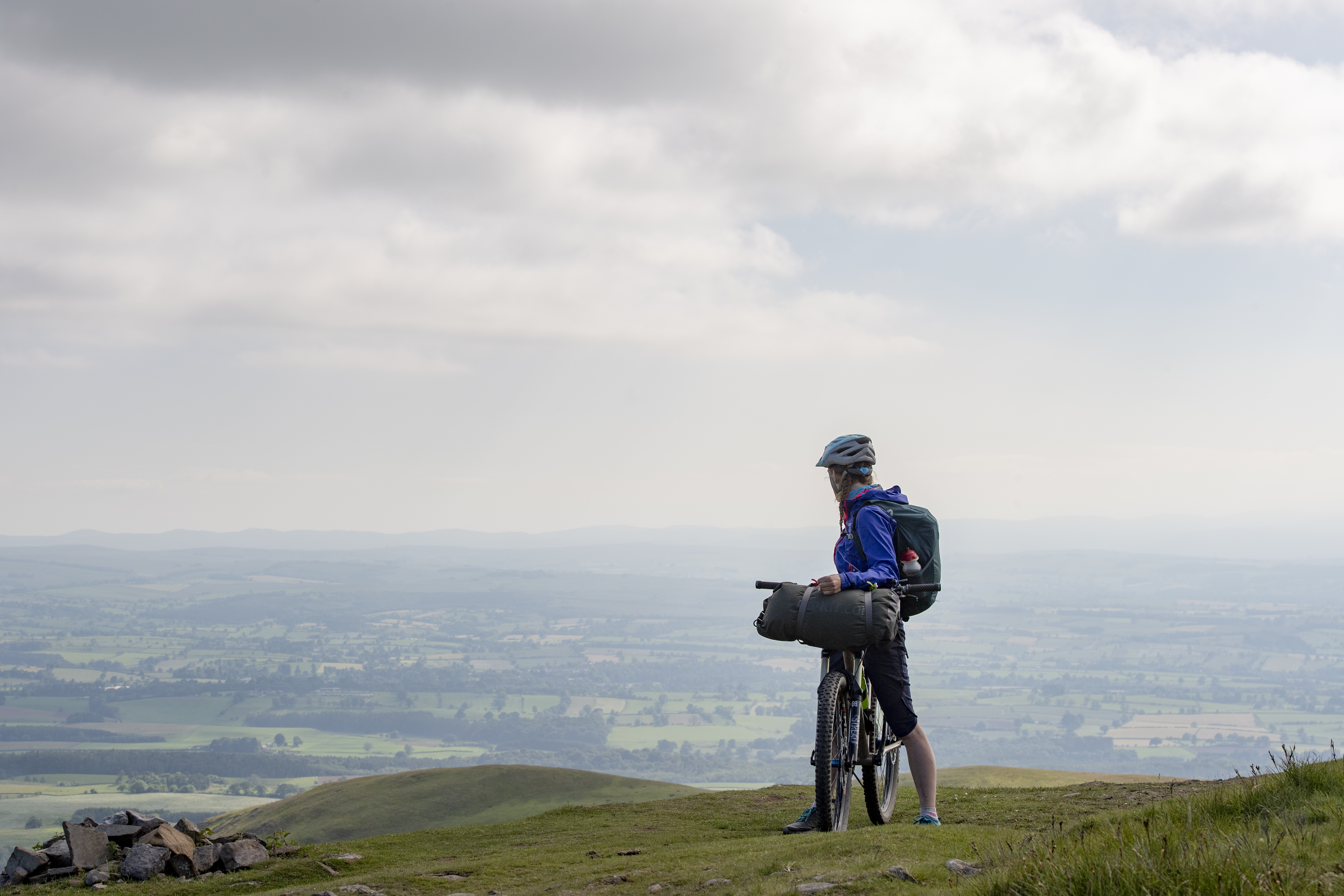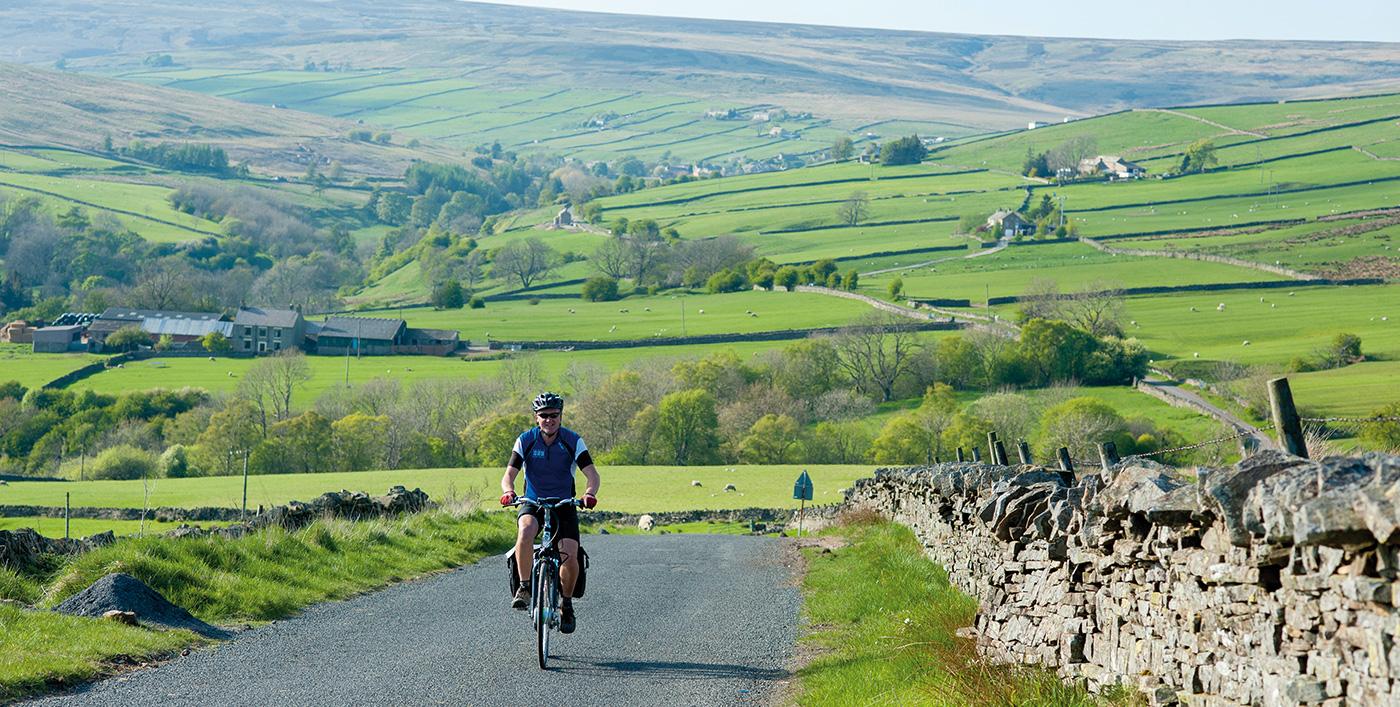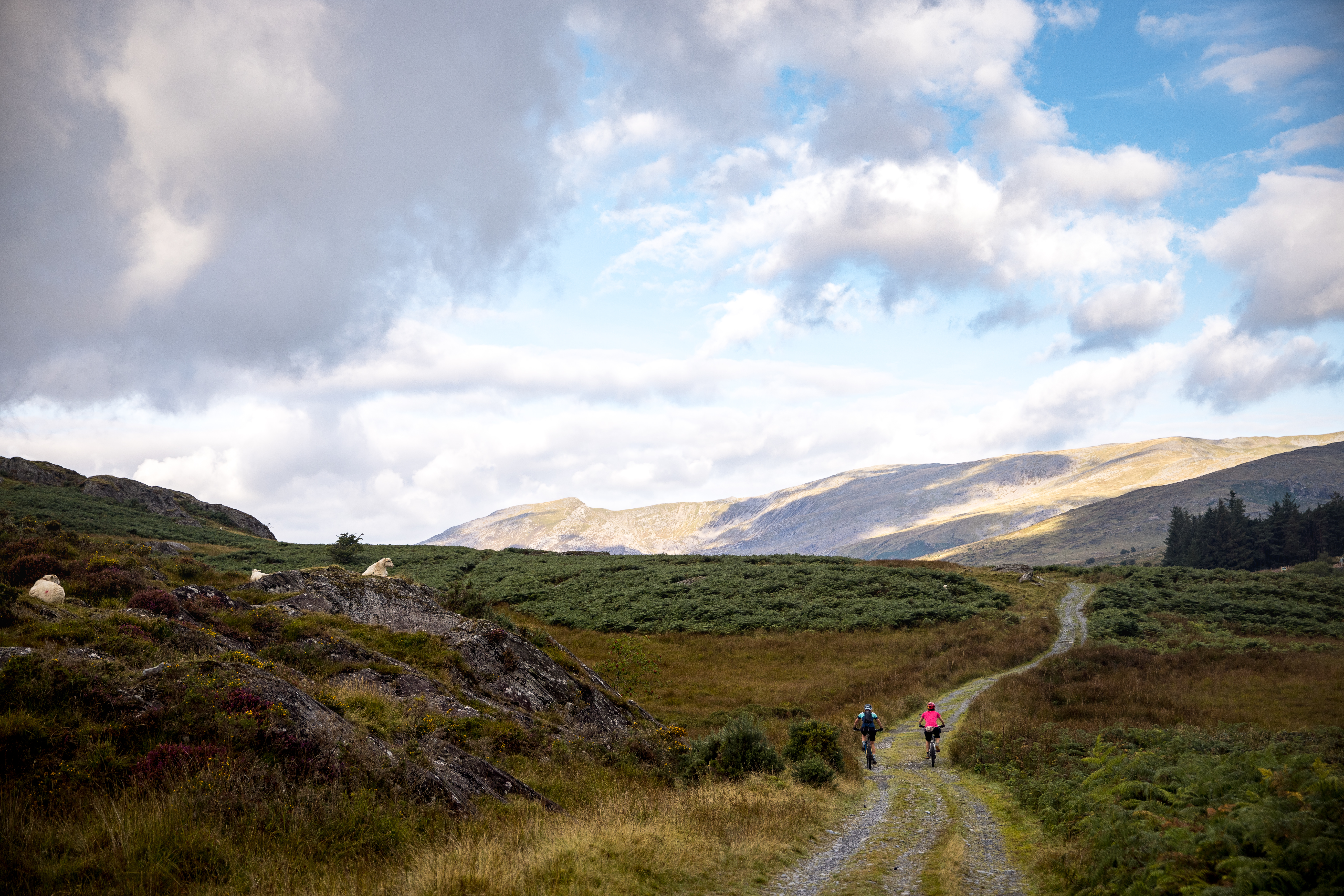Government’s “tunnel vision” excluding cycling and horse riding from new national trail challenged
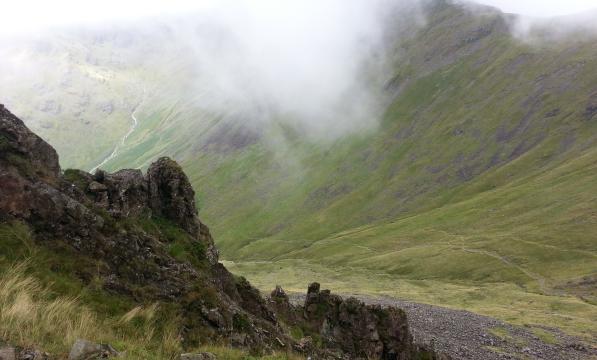
- Cycling UK and The British Horse Society send letter before action to the Department for Environment, Food and Rural Affairs and Natural England challenging exclusion of cycling and horse riding on new Wainwright Coast to Coast national trail
- Organisations are statutory consultees for upgrades to rights of way and were not contacted
- Cycling UK and The British Horse Society say their exclusion is a missed opportunity for rural business and have identified alternative routes which could open the trail for everyone
Cycling UK and The British Horse Society (BHS) have written a letter before action to the Secretary of State for Environment, Food and Rural Affairs (Defra), the Rt Hon Ranil Jawawardena MP, calling on the Government to reconsider proposals that would effectively prevent people cycling or horse riding along the length of England’s next National Trail, the Wainwright Coast to Coast.
Defra announced on 12 August 2022 that £5.6 million would be allocated to improve the 197-mile Wainwright Coast to Coast route, ahead of it becoming a National Trail in 2025.
The popular trail, which stretches from St Bees in Cumbria to Robin Hood’s Bay in North York Moors National Park, currently uses a combination of footpaths, which horse riders and cyclists cannot use, and bridleways, which they can.
The proposed upgrade to the National Trail effectively excludes those choosing to ride horses or cycles, as there is no continuous route they can use. This is contrary to recommendations made in the Glover Report 2019 which was used to inform the Government’s Landscapes review, advising how to make national landscapes more open to everyone.
Duncan Dollimore, Cycling UK’s head of campaigns, said:
“The Wainwright path is a fantastic attraction for the north of England, and it’s great news the Government wants it to be a National Trail.
“There’s so much to celebrate about the new trail’s aims to increase opportunities for people to experience the outdoors, but what is frustrating is the tunnel vision automatically excluding specific groups like people cycling or horse riding, that is also contrary to government policy on outdoor access.
“If you ride a bike or a horse, you can use only 22% of England’s rights-of-way network or ride two out of 16 of our National Trails. We need to do more to increase access, not limit it. The benefits are real for rural hospitality businesses, which will see increased trade from a more diverse group of visitors.”
When upgrading rights of way such as bridleways, Natural England and Defra are legally obliged to consult with prescribed organisations representing their different user groups. Cycling UK and The British Horse Society are two such organisations and should have been consulted, but were not contacted by Natural England ahead of the launch of the proposals for the Wainwright Coast to Coast path.
Had the two organisations been consulted, they had plans in place which could have allowed the creation of a multi-user trail. The British Horse Society and Cycling UK are now hoping Defra and Natural England will take the opportunity to consult and work towards the goal of creating a multi-user trail, avoiding further legal action.
Mark Weston, director of access at the British Horse Society, said:
“As vulnerable road users, horse riders face considerable dangers on our roads and the need for safer off-road riding opportunities has never been greater. For very little extra investment and a small proportion of time spent consulting with us and Cycling UK, we could make a real difference to horse riders and cyclists who want to continue to be safe, as well as enjoy the countryside.
Supporting this route to be multi-use could also make a valuable contribution to the north’s rural economy, helping to achieve the government’s stated objective of levelling up. It’s still not too late and we hope Defra will take the opportunity to discuss the benefits of this approach with us.”
Notes to editors
- Cycling UK, the UK’s cycling charity, imagines a world where the streets are free of congestion and the air is clean to breathe, where parents encourage their children to cycle to school and everyone shares the exhilaration of being in the saddle. For more than 140 years, we’ve been making our streets safer, opening up new traffic free routes and inspiring more people to cycle more often. www.cyclinguk.org
- As the largest equine charity in the UK, The British Horse Society is dedicated to education, equine welfare, protecting and increasing access to bridleways and places to ride and carriage drive off road, and safety for horse and riders. The Society’s thriving and active community of staff and volunteers is committed to improving the lives of horses everywhere. Visit bhs.org.uk to learn more.
- Government announcement on launch of Wainwright Coast to Coast being granted National Trail status: https://www.gov.uk/government/news/new-national-trail-status-awarded-for-popular-coast-to-coast-route
- Cycle tourism spending from cyclists in the UK generates £520m per year. There are 1.23 million overnight trips each year, benefiting small businesses in particular, and these contribute £433m to the economy. A survey of riders of King Alfred’s Way, a route starting in Winchester which the charity launched in 2020, shows on average every cyclist spends £83.60 per day on food and accommodation: https://www.cyclinguk.org/sites/default/files/document/2020/07/benefits_of_cycle_tourism_factsheet_final10738.pdf
- People horse riding and cycling can only ride the lengths of two of the 16 National Trails, the South Downs Way and Pennine Bridleway. In 2018, Cycling UK and The British Horse Society worked with the North Downs Way National Trail to create an alternative ‘riders’ route’.
Press contact information
For more information, please contact the national Cycling UK press office. Due to the restrictions caused by the coronavirus outbreak, currently the main press office number (01483 238 315) is not being monitored. If you would like to speak to a member of the press office during working hours (0900-1700) please email publicity@cyclinguk.org. Out of hours, call 07786 320 713
Contact: The British Horse Society Press Office
E: pressenquiry@bhs.org.uk
T: 02476 840 521


